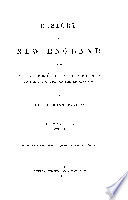 Thirdly, the supreme power cannot take from any man any part of his property without his own consent. For the preservation of property being the end of government, and that for which men enter into society, it necessarily supposes and requires that the... Thirdly, the supreme power cannot take from any man any part of his property without his own consent. For the preservation of property being the end of government, and that for which men enter into society, it necessarily supposes and requires that the...  The Political Register for ... - Página 1851769Visualização completa The Political Register for ... - Página 1851769Visualização completa - Sobre este livro
 | wililam a whitehead - 1883 - 724 páginas
...running into Disorder and Confusion. A very Learned and Worthy Author, Remarks,' ' That the Supream Power cannot take from any Man, 'any part of his Property, without his own Consent; ' for the Preservation of Property being the End of ' Government; and that for which Men enter... | |
 | John Locke - 1884 - 332 páginas
...and by such measures as they would not have known, and own not willingly. 138. Thirdly, the supreme power cannot take from any man any part of his property without his own consent. For the preservation of property being the end of government, and that for which men enter... | |
 | John Gorham Palfrey - 1890 - 702 páginas
...democracy, or government of all over all, to any other form they please." was this, that " the supreme power cannot take from any man any part of his property without his consent in person or by representation; taxes are not to be laid on the people, but by their consent... | |
 | John Gorham Palfrey - 1890 - 718 páginas
...Constitution in particular." Among them 270 HISTORY OF NEW ENGLAND. [Boon VL was this, that " the supreme power cannot take from any man any part of his property without his consent in person or by representation ; taxes are not to be laid on the people, but by their consent... | |
 | Robert Warden Lee - 1898 - 140 páginas
...judges." Otherwise it betrays its "trust1," the end for which it was ordained. s I36 3. The legislative "cannot take from any man any part of his property without his own consent." It may s. I38. not levy taxes on him but "with his own consent, ie the consent of the majority,... | |
 | Charles Sumner - 1900 - 398 páginas
...buttresses of a just government. I come at once to the plain statement of fundamental right. "The supreme power cannot take from any man any part of his property without his consent in person or by representation." " Taxes are not to be laid on the people but by their content... | |
 | Benjamin Kidd - 1902 - 558 páginas
...purposes, and by such measures as they would not have known, and own not willingly. Thirdly. The supreme power cannot take from any man any part of his property without his own consent. For the preservation of property being the end of government, and that for which men enter... | |
 | Edward Henry Spieker - 1904 - 288 páginas
...danger diminish in proportion 6 j£ h 2 happens to want them. — BOLINGBROKE. CXLIV The supreme power7 cannot take from any man any part of his property without his own consent. For the preservation of property being the end of government,8 and that for which men enter... | |
 | Samuel Adams - 1904 - 486 páginas
...— It is its Glory that it is copyd from Nature — It is an essential Part of it, that the supreme Power cannot take from any man any Part of his Property without his Consent — & so jealous is the Nation of Property that since the revolution the Power of naming Commissioners... | |
| |